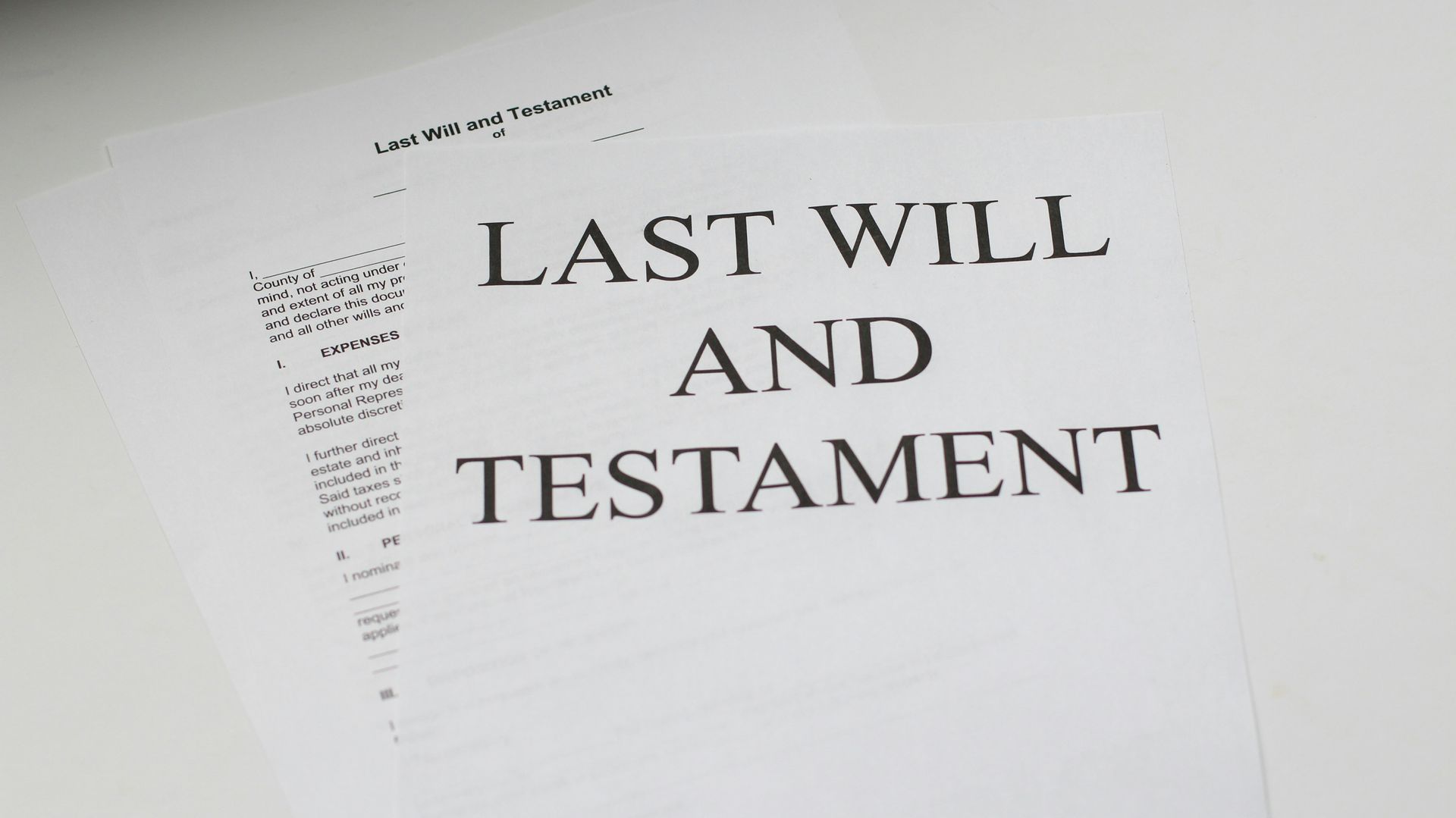By Julia Newlove
•
January 21, 2026
More couples than ever are choosing to live together without marrying or entering a civil partnership. While this arrangement works well for many, it can create significant inheritance tax and estate planning disadvantages on death. This article explains the main IHT disadvantages unmarried couples face compared with married couples or civil partners, the pitfalls of ‘leaving everything to each other’ (including life interest trusts), and why a nil rate band discretionary trust in a will is often a better planning tool for inheritance tax planning for unmarried couples. Inheritance Tax Planning for Unmarried Couples – Disadvantages Under the Inheritance Tax Act 1984, gifts between spouses and civil partners are generally exempt from IHT (the spousal exemption). Two allowances are central to IHT: · Nil Rate Band (NRB): currently £325,000 per individual. Up to this value, the taxable estate is charged at 0%. · Residence Nil Rate Band (RNRB): an additional allowance (subject to conditions) when a qualifying main residence is inherited by the deceased’s direct descendants. The current value is £175,000. For married couples or civil partners, unused NRB and RNRB can typically be transferred to the survivor, allowing up to two sets of allowances on second death. Unmarried couples do not benefit from these rules. In practice: · Gifts on death to an unmarried partner are potentially chargeable to IHT (subject to available allowances). · There is no automatic transfer of unused IHT allowances between unmarried partners. The transferable nil rate band is designed for spouses or civil partners only. The RNRB also has a practical trap in blended unmarried families. For RNRB purposes, “direct descendants” includes children, grandchildren and certain others; it also includes stepchildren. An unmarried partner’s child is not treated as the deceased’s “direct descendant”, so a gift of part of the home to that child will fail the “closely inherited” condition and the RNRB will be unavailable over that share. This is a key consideration in inheritance tax planning for unmarried couples with children from previous relationships. Leaving Everything to Each Other A common “simple will” choice is to leave everything to the surviving partner outright on first death. For an unmarried couple, that gift is not spouse-exempt. If the estate is above the available allowances, an IHT charge will arise immediately. Even where no IHT is payable on first death (because the estate is under the NRB), the second risk is that by gifting to the partner it will be bunching assets in them and without the benefit of any transferable allowances. Life Interest Trusts and Unmarried Couples Many wills include a life interest trust, either over the whole estate or just over the property (usually referred to as a Property Protection Trust or PPT). In simple terms, the survivor may have a right to occupy a property or receive income for life, with the capital eventually passing to named beneficiaries. These trusts can achieve non-tax objectives (for example, protecting a share of a property for children from a previous relationship). However, where the survivor benefits from a life interest, the trust will be considered as an Immediate Post-Death Interest (IPDI) and the trust capital will be taxed as part of the survivor’s estate for IHT on their death. Using life interest trusts for unmarried couples will therefore suffer the same IHT disadvantages as leaving to the partner outright. Why a Nil Rate Band Discretionary Trust Can Be More Effective A nil rate band discretionary trust is a will trust designed to capture up to the value of the NRB on first death. Instead of leaving everything outright to the partner, or tying up assets in a life interest, the will directs that an amount up to the NRB passes into a discretionary trust. Key features: · As a discretionary trust, the trustees decide who benefits, when, and by how much, from a class of beneficiaries (often including the surviving partner, children and sometimes wider family). · The trust is funded up to the NRB so no IHT is payable on that slice at the first death. · A discretionary trust is relevant property, and the beneficiaries of the trust are not considered as owning the trust capital for IHT. This avoids the trust fund being taxed as part of the surviving partner’s estate on their death. · The first partner’s NRB is used rather than wasted. · Trustees can lend to the survivor, assist with housing, or distribute to children depending on needs and tax position. While discretionary trusts are subject to their own IHT regime (periodic and exit charges under the relevant property rules), a trust funded up to the NRB is commonly structured to minimise or avoid such charges. Incorporating a nil rate band discretionary trust is a therefore a useful strategy in inheritance tax planning for unmarried couples. Example Andy and Betty are an unmarried couple. Andy has an adult child, Chloe, from a previous relationship. Betty has no children. They own a home as tenants in common and have separate savings. They want to provide for each other but also leave assets to Chloe. · Andy’s estate: 50% of the home (£350,000) + savings (£150,000) = £500,000 · Betty’s estate: 50% of the home (£350,000) + savings (£150,000) = £500,000 · Total combined wealth: £1,000,000 If they were married, they could simply leave everything to each other (or in life interests) and no IHT would be due. The spousal exemption will apply on first death. On second death, two sets of NRB and RNRB would be available regardless of who dies first, as Chloe is considered as Betty’s descendant for RNRB purposes as a stepchild. This will not be the case if they die unmarried. Option 1: Everything to partner Andy dies first and leaves his estate of £500,000 outright to Betty. · Andy’s NRB: £325,000. · The gift to Betty is not spouse-exempt. · Immediate taxable amount: £500,000 – £325,000 = £175,000. · IHT at 40%: £70,000 on Andy’s death. · Betty inherits £430,000 Betty now owns £930,000. When Betty later dies, she has only her own NRB (£325,000) because Andy’s unused allowance cannot transfer. · Taxable amount: £930,000 – £325,000 = £605,000. · IHT at 40%: £242,000 Option 2: Nil rate band discretionary trust + remainder to partner Andy’s will leaves the NRB (£325,000) into a nil rate band discretionary trust (beneficiaries include Betty and Chloe), and the balance (£175,000) to Betty outright. · IHT on Andy’s death: no IHT is due on the NRB Discretionary Trust · The remaining £175,000 to Betty is taxable at 40% as before · Betty inherits £105,000 Over time, trustees can support Betty (for example, by letting her live in the property or by lending funds). Crucially, the £325,000 in the trust is not part of Betty’s estate on her death, reducing exposure to IHT on second death. Betty now owns £605,000. Assuming the estate remained that value by the time of her death, her IHT would be calculated as follows: · Taxable amount: £605,000 – £325,000 = £280,000. · IHT at 40%: £112,000. Use of a NRB Discretionary Trust leads to an IHT saving of £130,000 over inheriting outright. Marriage/Civil partnership as an Option For some unmarried couples facing an IHT liability, it may be appropriate to consider marriage or civil partnership as part of their planning. This can significantly improve the IHT outcome because the spouse/civil partner exemption can allow assets to pass to the survivor free of IHT on the first death, and the survivor can benefit from transferred nil rate band and residence nil rate band from the first to die. That said, marriage/civil partnership can have important consequences beyond tax and they may wish to seek advice on creating a prenuptial agreement if they have significant wealth from before the relationship. While nuptial agreements are not automatically binding, the courts can give them significant weight where they are freely entered into, with full appreciation of their implications, and are fair in the circumstances. Conclusion For unmarried couples, the IHT framework is less generous than for spouses and civil partners. The absence of the spouse exemption and non-transferability of allowances means that common planning such as leaving everything to a partner, or relying on a life interest/PPT, can trigger tax when spouses would avoid it. The nil rate band discretionary trust offers a flexible and more tax-friendly alternative, but its implementation requires careful consideration of the client’s circumstances.





